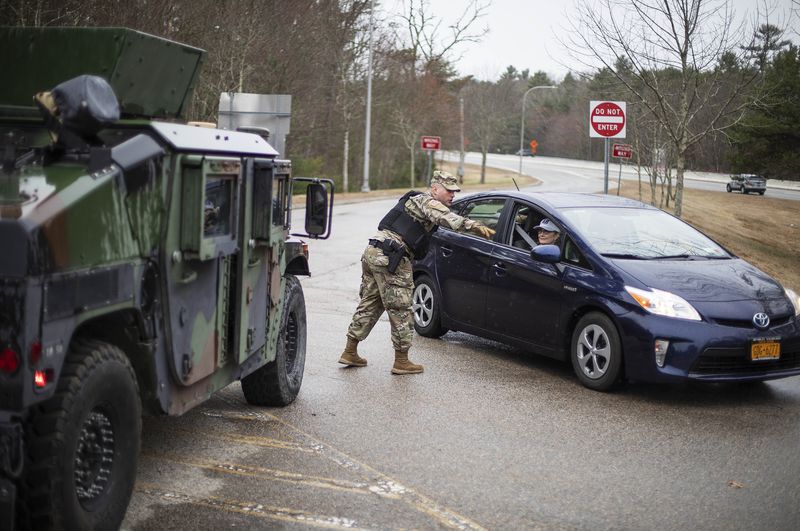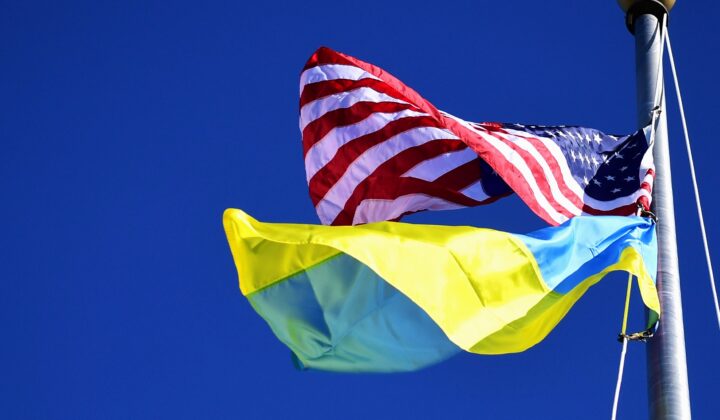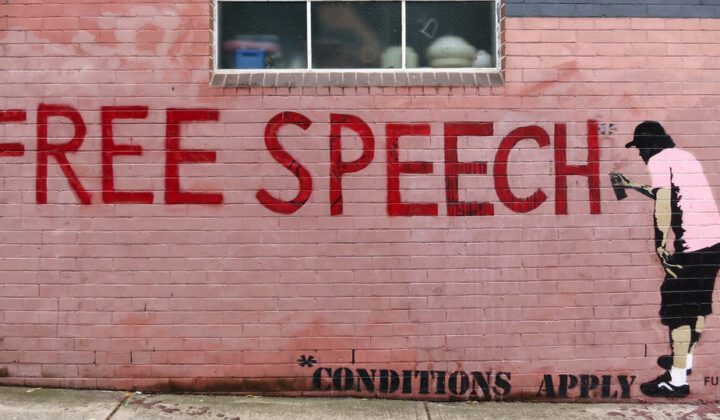To Protect Itself, America Turns on Itself
As the pandemic spreads throughout the nation, states are taking increasingly aggressive action to protect themselves. Texas Gov. Greg Abbott has issued an executive order mandating a two-week quarantine for travelers from seven cities and states. Florida Gov. Ron DeSantis, in addition to a similar two-week self-quarantine mandate, is now directing police to screen out-of-state travelers from coronavirus hotspots at highway roadblocks and airports. And last Friday, Rhode Island police began trying to track New Yorkers coming into their state, pulling over and interrogating drivers on the interstate and mandating self-quarantine.
Many of these actions are understandable, to be sure. To date, more Americans have died from COVID-19 than 9/11 and Dr. Fauci has estimated that between 100,000 and 200,000 Americans could die from the pandemic. That being said, these restrictions are deeply problematic, presenting serious legal and political concerns that must be considered along with the public health concerns of these individual states.
- What specific concerns do these policies raise?Though these restrictions may well be necessary, it is important that we think about their legal implications and whether or not they could set a negative precedent. Besides the legality of these restrictions, which may be in tension with both the 4th Amendment and the Privileges and Immunities Clause (Article IV Section 2) of the Constitution, there are serious public policy questions to consider. We must ask ourselves what kind of nation we would be creating if these practices were to become the new normal. Imagine a world in which inspecting, detaining, or even barring people upon/from entering new states is accepted practice. Logistically speaking, it would certainly be much more inconvenient to travel anywhere. But the real impact is beyond logistics—the very idea of a union would be in jeopardy. People would no longer think of themselves as citizens of a nation. Instead they would think of themselves as citizens of a particular state. In Federalist #2, John Jay wrote that a country “united to each other by the strongest ties, should never be split into a number of different unsocial, jealous, and alien sovereignties.” Though it is unlikely that these practices would extend beyond our current crisis, there is a real danger that by empowering each state to act in this way, the internal bonds of our union could weaken.
- What happens next?This future might be difficult to contemplate, but mere weeks ago, the idea that Rhode Island police would be hunting down New Yorkers seeking refuge would have seemed ludicrous. What happens next time when a contested presidential election pits neighboring states against one another? The pandemic surely presents unprecedented challenges. But our states must respond to it in a way that doesn’t undermine the integrity of our nation.

Hungary Becomes the First Dictatorship in the European Union
On March 29th, Hungary’s parliament voted by a two-thirds majority to grant extraordinary powers to Prime Minister Viktor Orban. In this arrangement, parliament will be suspended, Orban can rule by decree, no elections will be held, and spreaders of “fake news” about the virus may be punished with up to five years in prison. And terrifyingly, there is no set date for these emergency powers to expire; only another vote of parliament can end them. In other words, Hungary has become a dictatorship.
The descent of Hungary into Orban’s dictatorial grasp is particularly troubling because the Central European state was for many years on a path to becoming a stable democracy. Indeed, after the fall of its long-standing communist dictatorship in 1989, Hungary emerged from the Iron Curtain as a democracy, joining NATO in 1999 and the European Union in 2004.
- How did Hungary fall from democracy to authoritarianism? Orban and his political party, Fidesz, were not always authoritarians-in-waiting. Orban was first elected as a conventional conservative prime minister in 1998 but lost power in 2002. This loss set off a shift within Fidesz, which rebranded itself as a populist anti-establishment party. And when Orban and Fidesz returned to power in 2010, following the incumbent Socialist Party’s unpopular handling of the 2008 financial crisis, the conditions were ripe for Orban to take advantage. Orban set about changing the constitution, gerrymandering parliamentary districts, packing the constitutional court with loyalists, putting political allies in charge of the economy, suppressing opposition groups, and enacting draconian laws against migrants. He could rely on continuing popular support, however, by pitting the country against itself, imagining a struggle within Hungary between “real Hungarians”, i.e. white heterosexual Christians, and “globalizing” influences in the cities.
- Why is what happens in Hungary important to the rest of the world?Orban’s possession of vast and unconstrained emergency powers is deeply worrying not only for the people of Hungary, but for the rest of the world, because it offers other leaders a blueprint on how to exploit the pandemic and consolidate power. This is particularly dangerous because the response to Orban’s power grab has been ineffectual. Although individual members of Congress have denounced Orban’s action, President Trump and Secretary Pompeo have remained silent. And importantly, all the European Union has been able to muster to date is reluctant criticism. If the EU is seriously committed to maintaining its democratic character and its legitimacy as a whole, it must be far more assertive in defending democracy in Hungary, which could include voting to remove or suspend Hungary from the EU if it doesn’t backtrack. As authoritarians continue to make gains around the world, it is imperative that nations and international institutions step forward to defend the liberal democratic order.

One America Movement: Reducing Division in the Age of Polarization
(Note: RDI Interviewed One America Movement’s CEO Andrew Hanauer for this piece)
As any political observer in the United States surely understands, America has only grown more polarized in recent years. But there are organizations looking to counter that polarization, from Better Angels to Citizen University. One such organization is the One America Movement, founded in the aftermath of the 2016 presidential election. The group counters polarization by bringing people from different faith communities and from across the political spectrum together on issues that matter to them, including poverty, race relations, the opioid epidemic and more. Andrew Hanauer, CEO of the One America Movement, spoke with Renew Democracy Initiative and explained that: “The way you really bring people together is when they do things together . . . All the research shows that when you have a shared goal, you can bridge divisions really effectively.” Haneuer continued: “What [the local chapters] do together is up to them. In West Virginia it’s the opioid crisis. In Houston, it’s Hurricane relief. In every city that we work with, we really defer to the people who live in that community to tell us what they want to do.”
- Can religion help bridge the divides that are currently leading to widespread polarization? The One America Movement believes that it can. Hanauer points out that simply hosting a political debate between Democrats and Republicans can sometimes just activate the parts of the brain that identify the other person as your opposition, rather than as a fellow human being. But religion, as a main source of identity for many, can help people come together with a different framing and a different mindset. This in turn allows for a different kind of conversation, and in many ways a less binary, partisan conversation, even when there are a multitude of conflicting political perspectives in the room.At the same time, Hanauer underscores that religion is far from a necessary condition to unite Americans. Even in the context of the incredibly divisive arena of gun rights, he believes that you can reframe the issue in a way that highlights areas of agreement that can be the basis of shared action. He offers a hypothetical example of a local chapter of the NRA and a local chapter of Moms Demand for Action, two groups that are fundamentally at odds, coming together around reducing gun suicides in their community.
- What’s a unique approach that One America takes to combating polarization?The One America Movement partners with experts in international conflict resolution to help give Americans perspective about our conflict and set reasonable expectations for resolving it. Hanauer points out that “one of the ways to get Americans to feel less polarized is to help them realize that there have been people in other countries that have been shooting at each other for 70 years, and they figured out how to secure peace. Change is possible. Transformation is possible. We can do this.” Hanauer also thinks it’s important for Americans to understand that change is not easy. One conflict resolution expert shared the following thought with a local chapter of One America: “Look, I was part of a peace process. We had two years of talks . . . about how to have talks. That’s how long it can take. So If you haven’t solved all your divisions in 9 months, please don’t think that you’re failing. It takes time.”
- So what is the outlook for polarization in America?Objectively, not good, at least in the short term. America continues to suffer from the kinds of economic and cultural dislocation that breed polarization, extreme partisanship, and tribalism, and that allow politicians to exploit our worst instincts for political advantage. However, Hanauer remains hopeful. He fundamentally believes there is a deeper connection between human beings that no amount of polarization, divisive content, or foreign interference can hack into. The task is to activate this deeper core and make sure it stays at the forefront of who we are. One America has chapters in Georgia, Maryland, Illinois, Oklahoma, Pennsylvania, Southern California, Texas, Utah, Virginia, Washington, D.C., and West Virginia.

Defending the Voiceless: New Mexico Reforms Foster Program
For years, New Mexico’s foster program was under-resourced and unable to adequately address the needs of the state’s children, provoking a lawsuit in 2018 by advocacy groups alleging neglect and mistreatment of children. New Mexico ranks last for overall child-well being. However, over the past year, as part of substantial changes to the foster program, the new Governor, Michelle Lujan Grisham, has doubled the number of child welfare caseworkers, increased adoptions, and has begun to rebuild trust and communication with Native American communities.
The state has also reached a settlement agreement with plaintiffs, which calls for a series of reforms to be made by 2023. These include prohibiting sending foster children to hotels or out-of-state treatment centers, prioritizing placement with family members or family friends, guaranteeing access to mental health treatment, and requiring screening and treatment for trauma upon entering the system.
- What does foster care have to do with democracy?Society assumes that children are well represented by their voting parents. Given the poor state of American democracy at the moment, this is not necessarily the case, even if most parents have their children’s best interests at heart. But at least minors that are part of a family unit can hope for some representation in our system. Someone who is a ward of the state, on the other hand, cannot hope for any representation. They are at the complete mercy of a state and voting public that barely considers them, with the exception of heroic civil society groups. By giving greater priority to foster children, New Mexico is making sure the voiceless are not left behind, and can have a shot at prospering as citizens themselves. Furthermore, New Mexico’s great strides on foster care are an encouraging example of the power non-profits like Disability Rights New Mexico and Native American Disability Law Centre can exercise in changing government practice for the better. These two relatively small organizations were able to work within the legal system to broker a settlement that will hopefully transform the lives of countless foster children in New Mexico. Indeed, at its best, our justice system can vindicate the rights of the most vulnerable among us, helping to ensure equality of opportunity for everyone.





